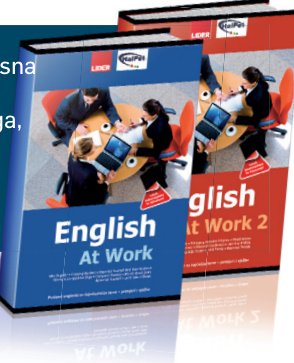Complete the text with the right form of the missing words. If necessary, consult the GLOSSARY.
Look back, and smile on perils past. \nWalter Scott
At first sight things 1._ to be very simple: when talking about something that happened in the past we can simply say I checked my mail. However, there is more to it. Consider the following four sentences:\n1. I have checked my mail. There’s nothing important.\n2. I checked my mail when the client came.\n3. I was checking my mail when the client came.\n4. I had checked my mail when the client came.\nThis time the situation is even more 2._ than with present: here we have four different tenses for something that could be translated 3._ Croatian as Provjerio/la sam or provjeravao/la sam poštu. You might ask yourself if there really is a difference.\nLet us see what the difference is and why we have to use different tenses for past events.\nI have checked my mail. There’s nothing important.\nI checked my mail five minutes ago.\nHow many of your English lessons may have been spent on futile 4._ to make you use I have checked it? Moreover, when speaking, this form still 5._ (if at all) crosses your lips. And again, non-native speakers seem to agree that they can live perfectly well without it. However, those of us who 6._ to perfection should maybe give one more try to understanding the logic behind the choice of I have checked, over the simple I checked. In the first example the focus is on the result of an activity which has happened at an 7._ past time. When is irrelevant here but what 8._ is that NOW we know there are no important mails do deal with. However, if you want to 9._ your colleague’s attention to the fact that you are absolutely sure there is nothing important to deal with because you checked the mail only five minutes ago you will stress exactly WHEN you did it by saying I checked it five minutes ago.\nThe sentence I was checking my mail when the client came, just wants to indicate that my work was in 10._ and was 11._ — by the entry of the client. On the other hand, you should choose I checked, for the activity that finished and we see it as 12._ — regardless of for how long it might have continued.\nIn the sentence I checked my mail when the client came, one action followed the other: the client came and then I remembered the mail he sent me (not good). In the sentence I was checking my mail when the client came, the client just came too early while I was still checking my mail (he interrupted me when I was in the middle of my activity and 13._ — a really good progress. In the sentence I had checked my mail when the client came, we are saying that the mail had already been checked 14._ before the client came and you can now talk to him without wondering whether there is something urgent in your mailbox.\n\n| Past Simple | activities completed at a definite past time | They signed the contract last month. |\n|————-|———————————————|————————————–|\n| Past Continuous | activities in progress around a point in past | They were signing the contract when I called. |\n| Present Perfect Simple | present result of activities happening at indefinite past time | They have just signed the contract. |\n| Past Perfect | activities which happened before some other past activity | They had signed the contract and told me about their decision a minute ago. |\n\nExercise 1 Fill in the gaps in the text by putting the verbs in brackets into one of the past tenses.\nWe (1) _ (just/sign) a new contract with an American company. We (2) _ (be) their partners for three years now and I am really proud of it. Last year we (3) _ (have) some problems. Before we (4) _ (start) working on the new project a year ago, we (5) _ (agree) on all the details. However, our partners (6) _ (change) their mind while we (7) _ (develop) the prototype. Fortunately, it’s all behind us now.\n\nExercise 2 Translate into English.\nWe (1) _ (just/sign) a new contract with an American company. We (2) _ (be) their partners for three years now and I am really proud of it. Last year we (3) _ (have) some problems. Before we (4) _ (start) working on the new project a year ago, we (5) _ (agree) on all the details. However, our partners (6) _ (change) their mind while we (7) _ (develop) the prototype. Fortunately, it’s all behind us now.\n\n—\n\nwww.halpet.hr\nHalPet – centar za edukaciju poslovnog stranog jezika i komunikacijskih vještina, Iloška 1, 10000 Zagreb; 01/3095-222; [email protected], www.halpet.hr\n\n’English at Work 1 i 2′ – lekcije objavljene u Lideru možete naći u dva izvršna priručnika za učenje poslovnoga engleskog jezika. Sadržavaju presjek čestih poslovnih tema, od onih iz financija, poslovnih odnosa i marketinga, odnosa s javnošću do onih koje se bave uspješnim komuniciranjem u poslovnom okružju.\nNaručite svoj primjerak u Liderovoj web-knjžari: webknjizara.liderpress.hr\n\n—\n\nLider // 13. rujna 2013.\n\n—\n\n046 engleski.indd 46\n9/10/13 5:54:04 PM\n




